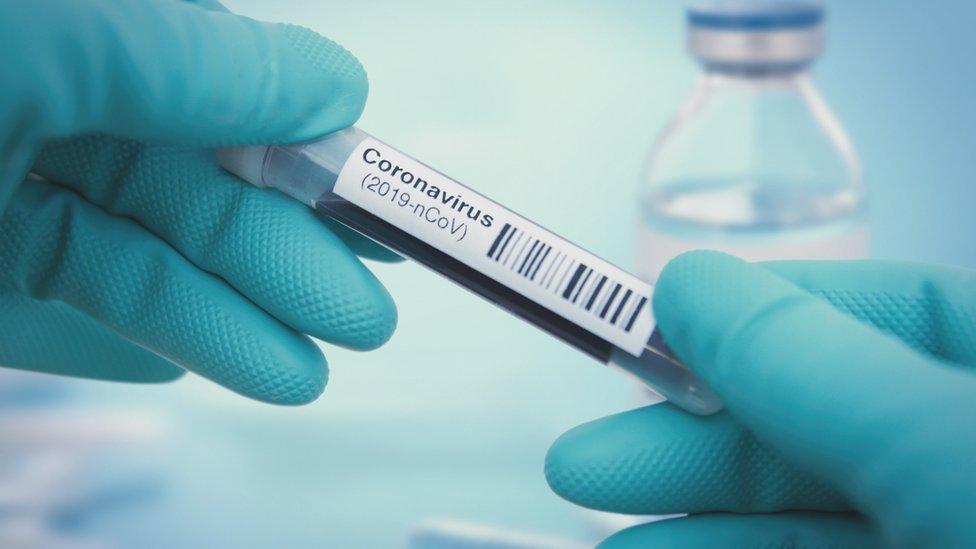Coronavirus: Guernsey test and trace changes before border relaxation
- Published
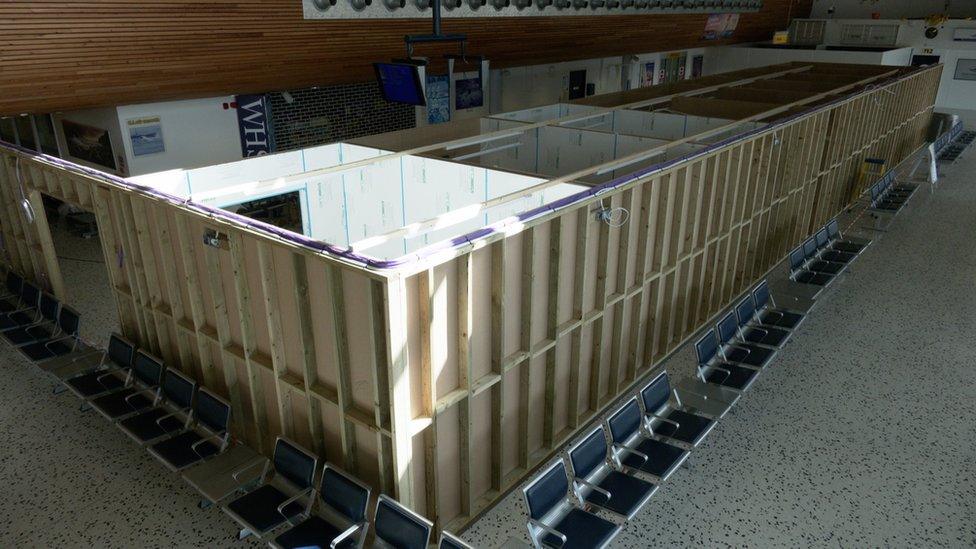
Border testing facilities are being built at the airport and harbour
Some travellers to Guernsey will only have to isolate until they receive a negative coronavirus test under the next stage of border rules relaxation.
Those from countries with low infection rates will be tested on arrival and allowed to leave isolation once a negative result is returned.
Travellers from countries with high infection rates will still have to self-isolate for 14 days.
No date has been set for the move to this next phase.
The results are expected to take 24-48 hours and travellers will take a further test seven days after arrival. Once released, they will be subject to passive follow up until two weeks have passed.
For those travelling via the Isle of Man air bridge the only change will be a requirement to register 48 hours before travelling, in common with all travellers.

Passive follow up
Must report any symptoms, however mild, immediately to Public Health
must not enter a nursing, care or residential home without the prior agreement of the manager of the home
Other than in an emergency must not enter the Princess Elizabeth Hospital
Must inform any healthcare provider of status before booking treatment
Must, so far as reasonably practicable, keep a record of people met and places visited
Must not travel to Alderney
Must comply with any additional conditions and restrictions imposed from time to time by the medical officer of health
Must not ravel during self-isolation

The tests will be self administered swabs with testing facilities being built at the airport and harbour.
On-island testing is being upgraded to a potential capacity of more than 2,000 tests a day.
The cost of testing is estimated at costing £3.7m for six months, plus a cost of £600,000 for the facilities.
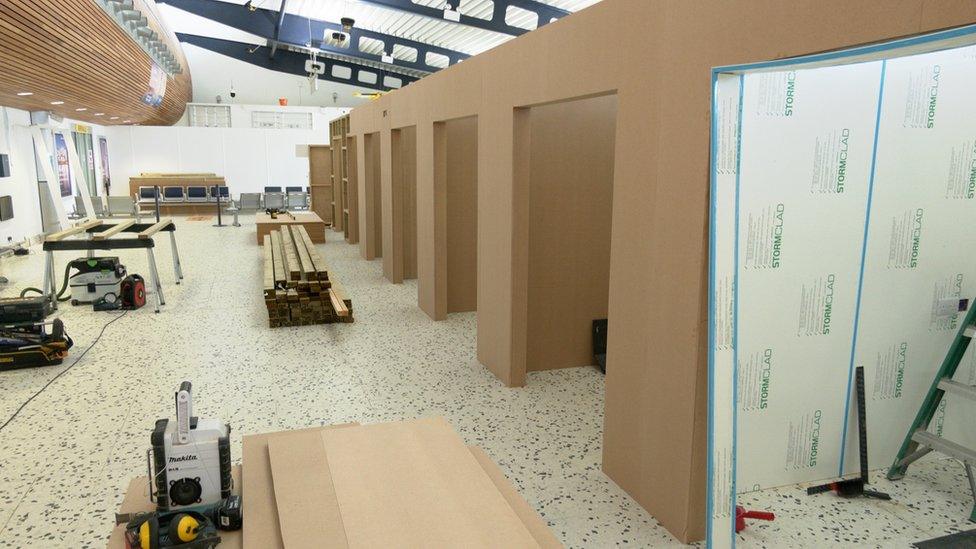
No date for the move to the new self-isolation rules has been announced
Dr Nicola Brink, director of Public Health, said: "It is important that we test arrivals on day seven, as well as when they first arrive, as this will allow us to identify the vast majority of those who may have contracted Covid-19 before or during their travel to Guernsey.
"But the additional mitigations mean we can feel more confident that they do not need to also self-isolate for the entirety of that time as we can use our contact tracers more effectively to locate any contacts and prevent the spread of the virus."
- Published14 August 2020
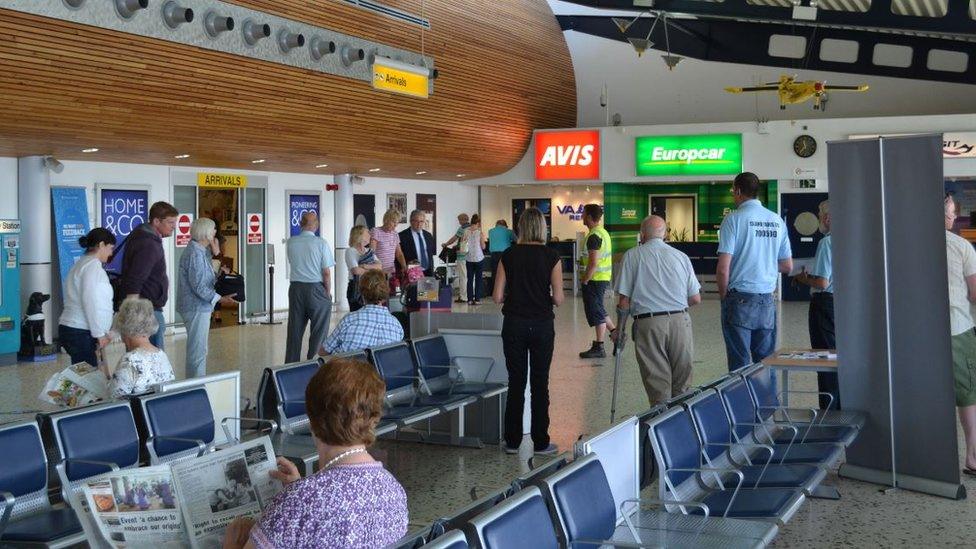
- Published5 August 2020

- Published25 June 2020
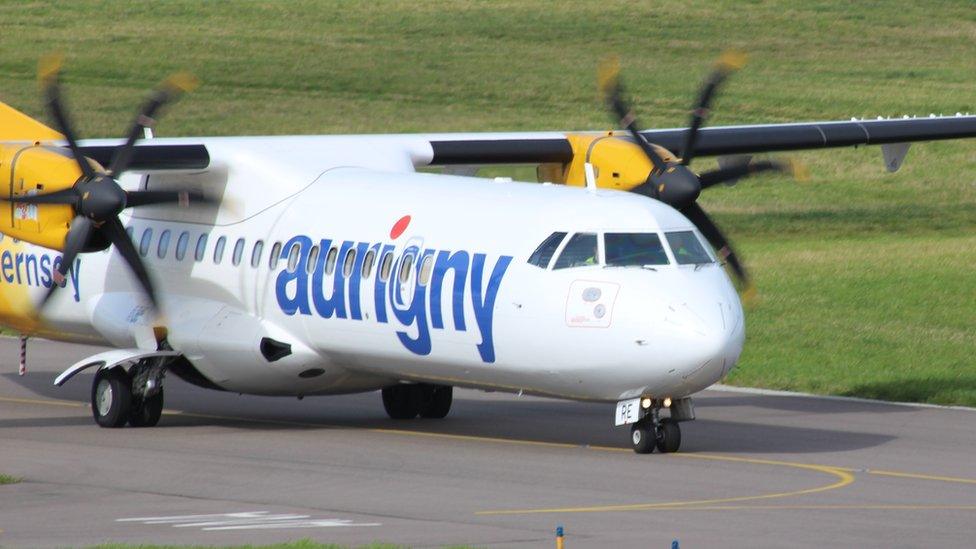
- Published11 June 2020
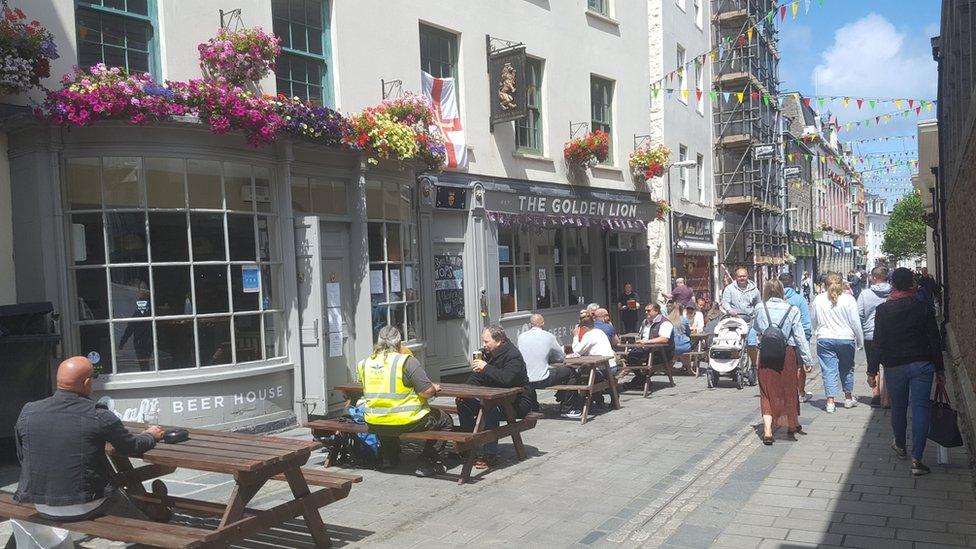
- Published27 May 2020
